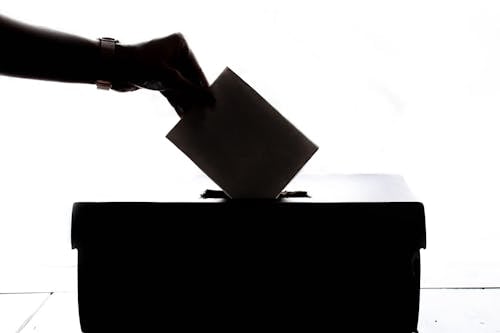
In the Peace Column of the Catholic Peace Weekly, a Korean Professor at a Catholic University in the States gives the readers some important considerations often neglected in our thinking about love and its meaning in our daily lives.
The expression “political aspects of love” appears in Pope Francis’ Encyclical 'All Brothers'. Here, 'love' is 'Agape' in Greek and 'Caritas' in Latin, and it means that our life and orientation change into love, staying in God and achieving unity with God rather than any specific action or emotion. It is the love mentioned in 1 Corinthians 13, and also the love when it is said that “God is love” (1 John 4:8),
This love that Christ taught through life and death exists at the antipodes of the 'desire' encouraged by the neoliberal society. A neoliberal society is a society that is operated by the modal verb of “can” that drives desire. Anything is possible. However, in reality, they live a life of slavery that exhausts them endlessly by mirroring the desires of others.
In contrast, love is not an attainable possibility. Because love doesn't allow us to take the initiative. Love begins only when I let go of the conviction that I can “do something” myself. Therefore, love inevitably leads to the transcendence of a being other than myself, violating the order familiar to myself, the world that supported my ability and will, participating in a world unfamiliar to me
"In the depths of every heart, love creates bonds and expands existence, for it draws people out of themselves and towards others. Since we were made for love, in each one of us “a law of ekstasis” seems to operate: “the lover ‘goes outside’ the self to find a fuller existence in another.” For this reason, "man always has to take up the challenge of moving beyond himself" (#88 All Brothers).
“Political love” goes a step further here. It is “a love that goes beyond self-centered friendship, which seems like a deep relationship on the surface” (# 89). It is a love that is revealed “not only in intimate and close relationships, but also in macro relationships at the social, economic, and political levels” (#181). The heart of political love is always the most “preferential love for the least” (#187). It means that loving others and the marginalized who live outside the boundaries of the ‘mainstream’ of our society should be the principle of political activity that Christians pursue. In other words, it is not simply looking at them with the eyes of mercy and helping them as much as I can, but looking at their specific faces, realizing their dignity, discovering God in them, and changing my life by loving them is what Christians should aim for. It is political love. The violence that oppresses the lives of the marginalized, “finding a solution to all violations of basic human rights, must be a top priority” (#187) because they block love.
We live in an extremely polarized society. To maintain and gain power, many political leaders highlight the weaknesses of their opponents and criticize and demonize those with whom they disagree. This kind of “mafia politics” that unites my side and strengthens it creates “a bond of dependence and subordination that is difficult to break free of due to a false community spirit” (#28). In the hearts of those who shout loudly that I can and must do it, not others, there is only the ambition to use the marginalized politically for their personal benefit and little concern to change the world to make it a place where everybody's dignity is respected.
The pope wore a yellow ribbon in remembrance of the Sewol ferry disaster when he visited Korea in 2014, saying: “We cannot remain neutral in the face of human suffering.” I don't think this should be understood as a question of which party to support or stand with.
The Christian's political choice is whether to ignore those who have been beaten and thrown out on the street and cross over to the other side or to reach out and raise their shoulders to become neighbors, not which politician they will side with. The partisanship of Christians is partisanship for the marginalized. Our society's "greatest danger is not to love" (#92)





